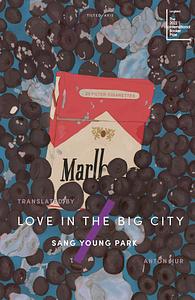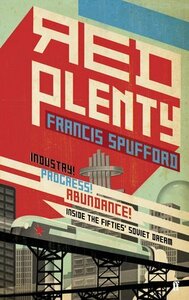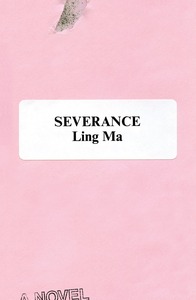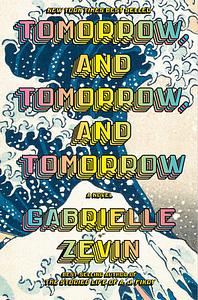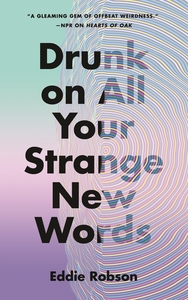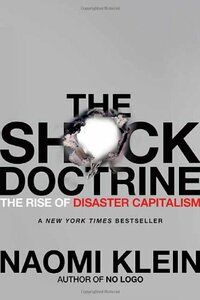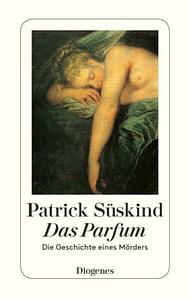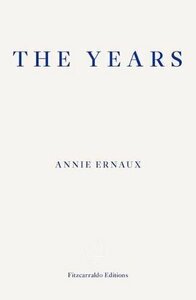Take a photo of a barcode or cover
pascalthehoff's reviews
404 reviews
If a novel should be measured by whether it accomplishes what it sets out to do – and if portraying „Love in the Big City“ is this novel’s mission statement – then this is 100 percent on point and as best as you can convey this premise.
The entire premise of Red Plenty is that it's neither a novel nor a non-fiction book about Soviet history. This in-between approach, as interesting as it may be, makes the book feel imbalanced between long awkward narrative passages and (fewer) absolutely on-fire theoretical and historical parts.
After the sheer density of the theoretical/historical bits, it's a big ask to endure the slow, long-winded, often stilted prose. I want to learn more about Marxist theory in the context of 1950s Soviet real politics; not listen to a person who gets way too much into detail about what they do at work. The narrative chapters feel just as cold and calculated as the theoretical chapters. While that tonality fits the theoretical "half" of the book (if it only were a 50/50 balance), it makes the in-the-moment chapters feel too lifeless to get really engaged in them.
The are great moments every once in a while. Like a Black cultural ambassador in the US being baited into fervently defending the capitalist, racist system that hates and exploits him. The whole us(a) vs. them was so ingrained that nobody was willing to acknowledge the advantages of the other system – sometimes leading to absurd argumentations. A thing that prevails until today with poor people, for example, defending the free market and "personal responsibility" as god-given values.
Thematically, Red Plenty does a great job of conveying how the ideological cold war between capitalism and communism was more of a cultural war than an actual competition where the better system was allowed to prevail fair and square.
There are also some really poetic bits about the meaning of the Marxist idea, like the sentiment of a "consciously arranged society" being the "biggest endeavor in the history of civilization" while in capitalism "humans become more dead and objects more lively". Those parts that expand on these concepts are really great. But overall, Red Plenty can't really hold a candle to neither the great novels nor the great non-fiction books about its subject.
After the sheer density of the theoretical/historical bits, it's a big ask to endure the slow, long-winded, often stilted prose. I want to learn more about Marxist theory in the context of 1950s Soviet real politics; not listen to a person who gets way too much into detail about what they do at work. The narrative chapters feel just as cold and calculated as the theoretical chapters. While that tonality fits the theoretical "half" of the book (if it only were a 50/50 balance), it makes the in-the-moment chapters feel too lifeless to get really engaged in them.
The are great moments every once in a while. Like a Black cultural ambassador in the US being baited into fervently defending the capitalist, racist system that hates and exploits him. The whole us(a) vs. them was so ingrained that nobody was willing to acknowledge the advantages of the other system – sometimes leading to absurd argumentations. A thing that prevails until today with poor people, for example, defending the free market and "personal responsibility" as god-given values.
Thematically, Red Plenty does a great job of conveying how the ideological cold war between capitalism and communism was more of a cultural war than an actual competition where the better system was allowed to prevail fair and square.
There are also some really poetic bits about the meaning of the Marxist idea, like the sentiment of a "consciously arranged society" being the "biggest endeavor in the history of civilization" while in capitalism "humans become more dead and objects more lively". Those parts that expand on these concepts are really great. But overall, Red Plenty can't really hold a candle to neither the great novels nor the great non-fiction books about its subject.
The premise sounds absolutely rad, but how Severance plays out is not quite as impressive. The post-apocalypse timeline takes up way more space than I would've expected and until the last quarter or so, it feels quite disjointed (or should I say "severed") from the rest of the story that tells the entire life of the protagonist – and by extension her parents – up to this apocalyptic event.
These chapters set in the past have more meat on them, but – excluding the bits about Chinese cultural heritage and immigrant experience – there still isn't too much going on there, relative to their length. The most striking aspect may be that the novel goes from an extremely cynical view on meaningless wage labor to portraying labor as the only anchor in a desperate situation of crisis. This 180 turnaround didn't feel entirely earned; though I can appreciate the uncanny melancholy it brings with it towards the end. There is a certain absurdism in the development that reveals more layers the more you rack your brain about it.
The pandemic-induced post-apocalypse of Severance begs you to compare it to Station Eleven by Emily St. John Mandel. And while the scenario of Severance is more focused and less romanticized, it's at the same time not as grounded and hard-hitting. That's mostly due to how Severance constructs its lead up to the event. You don't need to scientifically explain every detail about your civilization-ending pandemic. Quite the opposite actually – it's probably better not to even try. So here we see an approach that sits somewhere in the middle, between weird fungi and their sudden takeover of the entire continental topography. The apocalypse in Severance – just like its changing sentiment on labor mentioned above – didn't feel earned.
In line with its title, Severance fails to properly connect its fairly solid individual fragments to one cohesive narrative. This prevents the individual timelines and how they play into each other from feeling like a plausible chain of events and the entire novel is held back by that.
These chapters set in the past have more meat on them, but – excluding the bits about Chinese cultural heritage and immigrant experience – there still isn't too much going on there, relative to their length. The most striking aspect may be that the novel goes from an extremely cynical view on meaningless wage labor to portraying labor as the only anchor in a desperate situation of crisis. This 180 turnaround didn't feel entirely earned; though I can appreciate the uncanny melancholy it brings with it towards the end. There is a certain absurdism in the development that reveals more layers the more you rack your brain about it.
The pandemic-induced post-apocalypse of Severance begs you to compare it to Station Eleven by Emily St. John Mandel. And while the scenario of Severance is more focused and less romanticized, it's at the same time not as grounded and hard-hitting. That's mostly due to how Severance constructs its lead up to the event. You don't need to scientifically explain every detail about your civilization-ending pandemic. Quite the opposite actually – it's probably better not to even try. So here we see an approach that sits somewhere in the middle, between weird fungi and their sudden takeover of the entire continental topography. The apocalypse in Severance – just like its changing sentiment on labor mentioned above – didn't feel earned.
In line with its title, Severance fails to properly connect its fairly solid individual fragments to one cohesive narrative. This prevents the individual timelines and how they play into each other from feeling like a plausible chain of events and the entire novel is held back by that.
Tomorrow, and Tomorrow, and Tomorrow is one of the few works of fiction (that isn't a video game) that GETS video games. That's mostly due to how it isn't about games themselves, first and foremost, but about games culture. The people who play games and those who create games – with everything that makes this culture unique, but also ugly at times.
From a purely stylistic perspective, Tomorrow... avoids most of the pitfalls of quirky books about vidya games, though not all of them. "If this were a game, he could hit pause. He could restart, say different things, the right ones this time. He could search his inventory for the item that would make Sadie not leave." I hate these really on-the-nose game metaphors whenever they appear in any book. They are rather front-loaded towards the beginning of this novel, and I was glad that Tomorrow... didn't continue on that path. (Though there are still a few pretty hamfisted metaphors towards the end... But I can live with those.)
It's also weird how novels always feel the need to over-explain games. No novel would ever over-explain other media in a similarly patronizing manner. "Metal Gear Solid was a stealth game, which meant it was strategically advantageous to avoid being seen more than it was to engage someone in combat. The player spent a great deal of the game bored—hiding and waiting." Thank you, I know what "stealth" means.
Mind you, this comes from a novel that references Shakespeare at several occasions as if we all knew Macbeth by heart. Why is it that a novel that's all about games assumes you have read 400-year-old books, but have never even heard of a 20-year-old game? You may make an argument for inclusion, but overall, such explanations detract much more from the reading experience than they add to it. A Wikipedia blurb on Metal Gear Solid doesn't fit the perspective of these characters who live and breathe video games. So it's better to just risk the reader not getting this one specific reference than killing the novel's entire tonality to make dead sure absolutely everyone is in the same boat.
These gripes, as well as the sometimes sluggish pacing is what bothered me most about Tomorrow, and Tomorrow, and Tomorrow. The novel pulls you from big moment to big moment while implementing lots of cliffhangers at the end of chapters. It keeps you invested that way, but in-between these big moments, it tends to drag and feels way longer than it actually is.
What makes up for that is the novel's firm grasp on problems in the games industry and in games culture. Toxic higher-ups and toxic fans being the biggest problems here. But also what it entails to create a game and what makes the process so unique, but also uniquely soul-crushing. Not only from a creative perspective, but also from the highly commercialized business perspective with huge budgets and huge stakes.
The novel is set in the late 90s, where the video games as a medium were arguably most malleable for smaller teams. Given appropriate funds, independent teams then were still able to operate at the cutting edge of technology and compete with the big names who, at that time, mostly still put on their pants the same way as them.
There is smart game design philosophy in the novel that could come right out of a GDC talk or a YouTube think piece. And also some philosophical stuff about games that, in this way, could only come from literature. From questioning fundamental things ("It’s not violence that I hate anyway. It’s lazy games that act as if the only thing you can possibly do in life is shoot at something.") to more out-there waxing on games and their meaning in life ("Sadie had often reflected that sex and video games had a great deal in common. There were certain objectives that needed to be met. There were certain rules that shouldn’t be broken. There was a correct combination of movements … that made the whole thing work or not work. There was a pleasure to knowing you had played the game correctly and a release that came when you reached the next level. To be good at sex was to be good at the game of sex." (Not necessarily the deepest epiphany the novel has to offer, but it's a good example to show off in a short quote.)
Tomorrow... also never omits how important contributions from the sidelines are to game design. No process of game creation is ever just between "the auteur" and their masterpiece. Instead, we see the many figures who support Sam and Sadie in their endeavors of creating highly ambitious games.
There is also a lot of conflict concerning gender roles and relations in the game industry that I can't even begin to go into detail here, but which the novel makes a great job of displaying. And of course blatant bigotry – a lot of it, since you can't get around it in a post-gamergate age. Some of the novel's most gut-wrenching moments revolve around these subjects and they are 100% earned.
These earned payoffs of emotional arcs are mostly due to the superb, well-rounded characters. Basically none of them are fully likable (ok, maybe Marx is, and for good reason), but that only makes them more memorable. There are small sentences, that might seem like throwaway lines. But they convey so much about the characters they describe:
"To Marx, it seemed foolish not to love as many things as you could." This statement, for example, isn't at all as simplistic as it first sounds, but beautiful in its succinct on-point characterization. Or take this one about Sadie: "She was an avid reader (of fiction and nonfiction), but she never read the newspaper, other than the arts sections, and she felt guilty about this." So many things you need to know about her character – positive traits and small blemishes – all right in there.
Even side characters like Zoe benefit from laser-focused characterizations like these: "She was intelligent, but her intelligence didn’t get in the way of her enthusiasm." One short sentence to describe a very specific type of person who has a very healthy relationship towards her emotions, worldview and sense of self-worth.
Tomorrow, and Tomorrow, and Tomorrow throws a lot of stuff at the wall and not everything remains sticking. But what does remain is more than enough to make for a very unique and highly relevant novel. It is at the same time easy to approach for a broad audience, but also trusts you to have a firm grasp on video game culture (barring a few slip-ups). It threads the needle between being a mainstream-friendly (dare I say) young adult-ish novel and being a "work of literature" pregnant with meaning. Novels of this breed aren't easy to find.
From a purely stylistic perspective, Tomorrow... avoids most of the pitfalls of quirky books about vidya games, though not all of them. "If this were a game, he could hit pause. He could restart, say different things, the right ones this time. He could search his inventory for the item that would make Sadie not leave." I hate these really on-the-nose game metaphors whenever they appear in any book. They are rather front-loaded towards the beginning of this novel, and I was glad that Tomorrow... didn't continue on that path. (Though there are still a few pretty hamfisted metaphors towards the end... But I can live with those.)
It's also weird how novels always feel the need to over-explain games. No novel would ever over-explain other media in a similarly patronizing manner. "Metal Gear Solid was a stealth game, which meant it was strategically advantageous to avoid being seen more than it was to engage someone in combat. The player spent a great deal of the game bored—hiding and waiting." Thank you, I know what "stealth" means.
Mind you, this comes from a novel that references Shakespeare at several occasions as if we all knew Macbeth by heart. Why is it that a novel that's all about games assumes you have read 400-year-old books, but have never even heard of a 20-year-old game? You may make an argument for inclusion, but overall, such explanations detract much more from the reading experience than they add to it. A Wikipedia blurb on Metal Gear Solid doesn't fit the perspective of these characters who live and breathe video games. So it's better to just risk the reader not getting this one specific reference than killing the novel's entire tonality to make dead sure absolutely everyone is in the same boat.
These gripes, as well as the sometimes sluggish pacing is what bothered me most about Tomorrow, and Tomorrow, and Tomorrow. The novel pulls you from big moment to big moment while implementing lots of cliffhangers at the end of chapters. It keeps you invested that way, but in-between these big moments, it tends to drag and feels way longer than it actually is.
What makes up for that is the novel's firm grasp on problems in the games industry and in games culture. Toxic higher-ups and toxic fans being the biggest problems here. But also what it entails to create a game and what makes the process so unique, but also uniquely soul-crushing. Not only from a creative perspective, but also from the highly commercialized business perspective with huge budgets and huge stakes.
The novel is set in the late 90s, where the video games as a medium were arguably most malleable for smaller teams. Given appropriate funds, independent teams then were still able to operate at the cutting edge of technology and compete with the big names who, at that time, mostly still put on their pants the same way as them.
There is smart game design philosophy in the novel that could come right out of a GDC talk or a YouTube think piece. And also some philosophical stuff about games that, in this way, could only come from literature. From questioning fundamental things ("It’s not violence that I hate anyway. It’s lazy games that act as if the only thing you can possibly do in life is shoot at something.") to more out-there waxing on games and their meaning in life ("Sadie had often reflected that sex and video games had a great deal in common. There were certain objectives that needed to be met. There were certain rules that shouldn’t be broken. There was a correct combination of movements … that made the whole thing work or not work. There was a pleasure to knowing you had played the game correctly and a release that came when you reached the next level. To be good at sex was to be good at the game of sex." (Not necessarily the deepest epiphany the novel has to offer, but it's a good example to show off in a short quote.)
Tomorrow... also never omits how important contributions from the sidelines are to game design. No process of game creation is ever just between "the auteur" and their masterpiece. Instead, we see the many figures who support Sam and Sadie in their endeavors of creating highly ambitious games.
There is also a lot of conflict concerning gender roles and relations in the game industry that I can't even begin to go into detail here, but which the novel makes a great job of displaying. And of course blatant bigotry – a lot of it, since you can't get around it in a post-gamergate age. Some of the novel's most gut-wrenching moments revolve around these subjects and they are 100% earned.
These earned payoffs of emotional arcs are mostly due to the superb, well-rounded characters. Basically none of them are fully likable (ok, maybe Marx is, and for good reason), but that only makes them more memorable. There are small sentences, that might seem like throwaway lines. But they convey so much about the characters they describe:
"To Marx, it seemed foolish not to love as many things as you could." This statement, for example, isn't at all as simplistic as it first sounds, but beautiful in its succinct on-point characterization. Or take this one about Sadie: "She was an avid reader (of fiction and nonfiction), but she never read the newspaper, other than the arts sections, and she felt guilty about this." So many things you need to know about her character – positive traits and small blemishes – all right in there.
Even side characters like Zoe benefit from laser-focused characterizations like these: "She was intelligent, but her intelligence didn’t get in the way of her enthusiasm." One short sentence to describe a very specific type of person who has a very healthy relationship towards her emotions, worldview and sense of self-worth.
Tomorrow, and Tomorrow, and Tomorrow throws a lot of stuff at the wall and not everything remains sticking. But what does remain is more than enough to make for a very unique and highly relevant novel. It is at the same time easy to approach for a broad audience, but also trusts you to have a firm grasp on video game culture (barring a few slip-ups). It threads the needle between being a mainstream-friendly (dare I say) young adult-ish novel and being a "work of literature" pregnant with meaning. Novels of this breed aren't easy to find.
Whoever wrote the teaser on the back of the book did an incredible job selling this. After a strong opening, which really is about what the blurb says, the novel veers off into an incredibly mundane, lengthy and uneventful whodunnit murder mystery.
Is it still about the post-first-contact aliens on earth, which are actually quite interesting? Not enough that it would matter. And while there are a few interesting perspectives on the role of translators in society, the novel could have done with much more focus on this aspect as well. It's a case where it might have been advantageous to adhere more closely to the initial premise, even if it meant risking a certain corniness – the tone of the novel tends to be kind of informal, Douglas-Adams-ish anyway.
Either way, the problem isn't that Drunk on All Your Strange New Words veers off into a murder mystery – at least not in itself. It's that the novel clearly isn't as capable at telling a compelling murder mystery as it is at cracking a few jokes about a drunk alien translator and the absurd lore behind that. It's like the novel entirely switches from one genre to another. I was baffled by how jarring it is.
Is it still about the post-first-contact aliens on earth, which are actually quite interesting? Not enough that it would matter. And while there are a few interesting perspectives on the role of translators in society, the novel could have done with much more focus on this aspect as well. It's a case where it might have been advantageous to adhere more closely to the initial premise, even if it meant risking a certain corniness – the tone of the novel tends to be kind of informal, Douglas-Adams-ish anyway.
Either way, the problem isn't that Drunk on All Your Strange New Words veers off into a murder mystery – at least not in itself. It's that the novel clearly isn't as capable at telling a compelling murder mystery as it is at cracking a few jokes about a drunk alien translator and the absurd lore behind that. It's like the novel entirely switches from one genre to another. I was baffled by how jarring it is.
A typical case of "I knew it was bad, but not how bad it actually was." One more on the pile of books everyone should read. Be it to better understand neoliberal ideology (which seems more like a religion the more you learn about its origins) or to get a firmer grasp on how nefarious US imperialism really is. Well duh! But: Now matter how primed you are to hate these two concepts anyway, this book will make you despise them even more.
What hits particularly hard is the history of post-soviet Russia, given the current context with the Ukraine invasion. To imagine that the initial plan after the USSR was to build a Russian Federation in the image of the Sweden... and for this plan to be gutted and bled out by neoliberals...
After reading this, as a German, I appreciate even more the lightning in the bottle that was the Marshall Plan. And I just can't fathom how this proven model (or anything vaguely along the same lines) did not become the go-to method of rebuilding countries in crises if it worked so well for Central Europe and the US, especially in the long run.
What hits particularly hard is the history of post-soviet Russia, given the current context with the Ukraine invasion. To imagine that the initial plan after the USSR was to build a Russian Federation in the image of the Sweden... and for this plan to be gutted and bled out by neoliberals...
After reading this, as a German, I appreciate even more the lightning in the bottle that was the Marshall Plan. And I just can't fathom how this proven model (or anything vaguely along the same lines) did not become the go-to method of rebuilding countries in crises if it worked so well for Central Europe and the US, especially in the long run.
adventurous
dark
medium-paced
Plot or Character Driven:
A mix
Strong character development:
Complicated
Loveable characters:
No
Diverse cast of characters:
No
Flaws of characters a main focus:
Complicated
Sehr witzig, dass einer der größten deutschen modernen Klassiker sich anfühlt wie ein Buch aus dem 18. Jahrhundert – das sagt sehr viel über die deutsche Literaturszene. Dennoch verdient Das Parfüm natürlich seine Lorbeeren, denn so muss man erstmal schreiben können. Schließlich bietet der Roman nicht nur eine unkonventionelle stilistische Richtung, sondern auch beeindruckende Stilsicherheit.
Das Parfüm ist maximalistisch und maßlos in seiner Darstellung eines äußerst extravaganten Charakters. Dass der Protagonist keine tiefen Sympathien wecken soll, ist mehr als deutlich. Dennoch geht das Parfüm schon SEHR auf Nummer sicher, dass die Verkommenheit der Figur bei den Leser*innen ankommt.
Einige der Schandtaten sind sehr dick aufgetragen und driften in ihrem Überschreiten von Geschmacksgrenzen vom Zweckgemäßen ins Sensationalistische. Durch diese Überspitzung entstehen prägnante Momente, die sicherlich für immer im Kopf bleiben. Dennoch kann ich Das Parfüm nicht vollends respektieren, wenn die Werkzeuge, derer es sich für seinen Effekt bemüht, so große Löcher schlagen – wenn auch mit beeindruckender Präzision.
Graphic: Misogyny, Sexual violence, Murder
informative
reflective
fast-paced
Crazy what changes and events people born during World War II have witnessed throughout their lives. With modern medicine enabling people to live longer (a trend that also intensified during that time in Western countries), it’s only natural that a single average person is able to witness more societal progress throughout their lives. But the sheer waves of new technology and political movements from 1940 to 2010 are probably unlike anything else in the history of civilization.
It’s exciting to read such an eloquent recounting of all these developments from an intimate individual perspective like this. I wonder if this book is more exciting if you didn’t actually live through that time yourself. Because I clearly became less interested once the book arrived in the era for which I already had more hisitorical knowledge before reading.
Especially the parts that were more Franco-centric were interesting, in that regard, compared to the more big-picture events in the more recent „globalized world“ since I didn’t have that distinct of an idea of what life in France was like in the 1940s or 1950s.
Bei sieben parallel eingeführten Figuren grenzt es an ein Wunder, wie robust jede dieser einleitenden Erzählungen ist. Ich tue mich sonst sehr schwer mit Kurzgeschichten oder kurzgeschichten-ähnlichen Erzählungen, aber diese Exposition hat mich zumindest nie verloren.
Manche Figuren sind arg überspitzt, aber das kommt dem übergreifenden Erzähltempo zugute. Denn die Charaktere fungieren primär als Vehikel für die philosophischen Thesen des Buches. Sie werden in einem Kapitel eingeführt... und dann gibt es in ihrem nächsten auch schon das Payoff.
Die Charaktere sind dadurch teils sogar ein wenig overwritten; denn nicht jede Figur rechtfertigt zu 100% ihren Charakterisierungsaufwand. Ich fieberte nie mit einem persönlichen Schicksal mit; es entstand eher eine intellektuelle Spannung der Sorte „Oh nein, was würde diese Situation nun für eine alleinerziehende Mutter bedeuten!?“ Um die Mutter als Figur habe ich mich dabei aber nicht geschert. Das Highlight bezüglich der Charaktere ist das Erstbegegnungskapitel, das den Wendepunkt der Geschichte aus vielen nuancierten Winkeln betrachtet.
Abgesehen davon sind die Science-Babbel-Passagen der eigentliche Star des Romans. Die Erzählung schießt sich zwar erstaunlich schnell auf Simulationstheorie ein, schafft es aber auch, diese – zuerst weit hergeholte – These überraschend fundiert und vielschichtig zu erklären. Dabei gibt es viele Anknüpfungspunkte an andere spannende existenzielle Themen wie außerirdisches Leben usw.
Insgesamt ist der Roman aber weniger originell in seinen Themen als in seiner Machart: Für ein Buch, das so große Ideen jongliert, ist Die Anomalie sehr kompakt und weiß, wie man abstrakte Themen zielgerichtet in einen emotionalen menschlichen Kontext setzt. Besonders genial in puncto Zugänglichkeit (und witzig noch dazu) ist Donald Trump als stand-in für unwissende Leser*innen. Alles andere als selbstverständlich in einem Buch, dessen Mitte sich für dutzende Seiten nur um wissenschaftlichen, metaphysischen und theologischen Diskurs dreht.
Kompakt bedeutet in diesem Roman aber auch: Es gibt sehr viel Aufbau – fast die Hälfte der Seiten – und wenn es dann richtig anfängt, ist es fast schon wieder vorbei. Umso mehr beeindruckt dann aber, wie sauber die Schleife hält, die der Roman am Ende dran macht.
Manche Figuren sind arg überspitzt, aber das kommt dem übergreifenden Erzähltempo zugute. Denn die Charaktere fungieren primär als Vehikel für die philosophischen Thesen des Buches. Sie werden in einem Kapitel eingeführt... und dann gibt es in ihrem nächsten auch schon das Payoff.
Die Charaktere sind dadurch teils sogar ein wenig overwritten; denn nicht jede Figur rechtfertigt zu 100% ihren Charakterisierungsaufwand. Ich fieberte nie mit einem persönlichen Schicksal mit; es entstand eher eine intellektuelle Spannung der Sorte „Oh nein, was würde diese Situation nun für eine alleinerziehende Mutter bedeuten!?“ Um die Mutter als Figur habe ich mich dabei aber nicht geschert. Das Highlight bezüglich der Charaktere ist das Erstbegegnungskapitel, das den Wendepunkt der Geschichte aus vielen nuancierten Winkeln betrachtet.
Abgesehen davon sind die Science-Babbel-Passagen der eigentliche Star des Romans. Die Erzählung schießt sich zwar erstaunlich schnell auf Simulationstheorie ein, schafft es aber auch, diese – zuerst weit hergeholte – These überraschend fundiert und vielschichtig zu erklären. Dabei gibt es viele Anknüpfungspunkte an andere spannende existenzielle Themen wie außerirdisches Leben usw.
Insgesamt ist der Roman aber weniger originell in seinen Themen als in seiner Machart: Für ein Buch, das so große Ideen jongliert, ist Die Anomalie sehr kompakt und weiß, wie man abstrakte Themen zielgerichtet in einen emotionalen menschlichen Kontext setzt. Besonders genial in puncto Zugänglichkeit (und witzig noch dazu) ist Donald Trump als stand-in für unwissende Leser*innen. Alles andere als selbstverständlich in einem Buch, dessen Mitte sich für dutzende Seiten nur um wissenschaftlichen, metaphysischen und theologischen Diskurs dreht.
Kompakt bedeutet in diesem Roman aber auch: Es gibt sehr viel Aufbau – fast die Hälfte der Seiten – und wenn es dann richtig anfängt, ist es fast schon wieder vorbei. Umso mehr beeindruckt dann aber, wie sauber die Schleife hält, die der Roman am Ende dran macht.
Alltäglichen Charakteren geschehen (traurige) alltägliche Dinge und es bleibt trotzdem von Anfang bis Ende aufregend.
Vom Ende der Einsamkeit folgt einer ähnlichen Formel wie andere Romane, in denen es emotional stetig bergab geht und auf jeden kleinen Lichtblick die nächste Katastrophe folgt. Dabei ist es zwar weniger ausschweifend als z.B. A Little Life (Hanya Yanagihara) und weniger hektisch als Normal People (Sally Rooney), erreicht aber auch nicht deren erzählerische Tiefe. Dennoch glänzt Vom Ende der Einsamkeit immer wieder in Nuancen, in denen Charaktere messerscharfe und stilistisch kreative Feststellungen über ihr eigenes Innenleben treffen.
Im Vergleich zu ähnlichen "Abwärtsspiralenromanen" ist Vom Ende der Einsamkeit weniger ausgefallen und sensationalistisch. Es bleibt näher an der Realität der gewöhnlichen Leser*innen, hat dadurch aber auch weniger erinnerungswürdige Momente. Denn starke Literatur muss manchmal einfach ein wenig auf die Kacke hauen. Dafür ist es vielleicht schlicht ein wenig zu klischee-deutsch.
Der vielleicht seltsamste Widerspruch: Obwohl die Charaktere und ihr Leben oberflächlich alltäglich erscheinen und ihre Leben von ständigen Misserfolgen und Schicksalsschlägen geplagt sind, nähern sich alle Figuren im Laufe der Story auf geradezu magische Weise den Idealen eines "guten Lebens" an. In dieser kleinen dysfunktionalen Familie gibt es eine übermäßige Dichte von Drogenmissbrauch, aber auch von aberwitzigen Karriereerfolgen – ohne, dass es im Kontext der Erzählung 100 % glaubwürdig wirkt oder ihr irgendetwas von Wert hinzufügt.
Ähnlich hölzern wirken auch einige der zentralen Charakterbeziehungen, deren Spannungsbögen sich zu sehr auf konstruierte Missverständnisse verlassen. "Redet doch einfach mal Klartext miteinander!" Das könnte man über viele Geschichten sagen – und in Maßen funktionieren Missverständnisse als Plotwerkzeug ja sogar. Aber Vom Ende der Einsamkeit überspannt den Bogen zu häufig zu stark.
Ich hab gehört, dass Benedict Wells häufig in Schulen gelesen wird – und als Jugendbuch (wie es gerne mal bezeichnet wird) funktioniert Vom Ende der Einsamkeit natürlich super! Denn Jugendbücher, die ihr Publikum so ernst nehmen und zu keinem Moment bevormunden, kenne ich wenige.
Vom Ende der Einsamkeit folgt einer ähnlichen Formel wie andere Romane, in denen es emotional stetig bergab geht und auf jeden kleinen Lichtblick die nächste Katastrophe folgt. Dabei ist es zwar weniger ausschweifend als z.B. A Little Life (Hanya Yanagihara) und weniger hektisch als Normal People (Sally Rooney), erreicht aber auch nicht deren erzählerische Tiefe. Dennoch glänzt Vom Ende der Einsamkeit immer wieder in Nuancen, in denen Charaktere messerscharfe und stilistisch kreative Feststellungen über ihr eigenes Innenleben treffen.
Im Vergleich zu ähnlichen "Abwärtsspiralenromanen" ist Vom Ende der Einsamkeit weniger ausgefallen und sensationalistisch. Es bleibt näher an der Realität der gewöhnlichen Leser*innen, hat dadurch aber auch weniger erinnerungswürdige Momente. Denn starke Literatur muss manchmal einfach ein wenig auf die Kacke hauen. Dafür ist es vielleicht schlicht ein wenig zu klischee-deutsch.
Der vielleicht seltsamste Widerspruch: Obwohl die Charaktere und ihr Leben oberflächlich alltäglich erscheinen und ihre Leben von ständigen Misserfolgen und Schicksalsschlägen geplagt sind, nähern sich alle Figuren im Laufe der Story auf geradezu magische Weise den Idealen eines "guten Lebens" an. In dieser kleinen dysfunktionalen Familie gibt es eine übermäßige Dichte von Drogenmissbrauch, aber auch von aberwitzigen Karriereerfolgen – ohne, dass es im Kontext der Erzählung 100 % glaubwürdig wirkt oder ihr irgendetwas von Wert hinzufügt.
Ähnlich hölzern wirken auch einige der zentralen Charakterbeziehungen, deren Spannungsbögen sich zu sehr auf konstruierte Missverständnisse verlassen. "Redet doch einfach mal Klartext miteinander!" Das könnte man über viele Geschichten sagen – und in Maßen funktionieren Missverständnisse als Plotwerkzeug ja sogar. Aber Vom Ende der Einsamkeit überspannt den Bogen zu häufig zu stark.
Ich hab gehört, dass Benedict Wells häufig in Schulen gelesen wird – und als Jugendbuch (wie es gerne mal bezeichnet wird) funktioniert Vom Ende der Einsamkeit natürlich super! Denn Jugendbücher, die ihr Publikum so ernst nehmen und zu keinem Moment bevormunden, kenne ich wenige.
